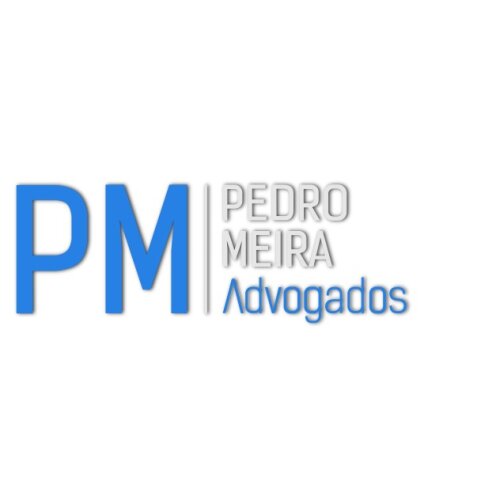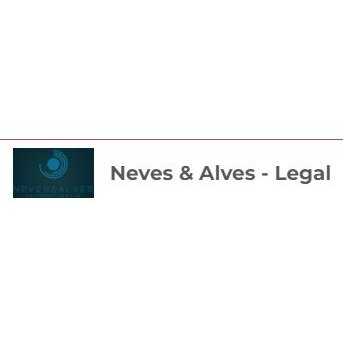Best Restructuring & Insolvency Lawyers in Porto
Share your needs with us, get contacted by law firms.
Free. Takes 2 min.
List of the best lawyers in Porto, Portugal
About Restructuring & Insolvency Law in Porto, Portugal
Restructuring and insolvency law in Porto, Portugal governs the legal processes involved when individuals or companies are unable to meet their financial obligations. The main objectives of these laws are to enable financially distressed businesses or individuals to restructure debt, protect creditor rights, and ensure the orderly distribution of assets if insolvency occurs. Porto, being one of Portugal’s major economic centers, is home to many businesses and entrepreneurs that may face financial challenges, making knowledge of local restructuring and insolvency procedures essential.
Why You May Need a Lawyer
Many situations can require the expertise of a restructuring and insolvency lawyer in Porto:
- Your company is struggling to pay debts and you want to explore options to avoid bankruptcy.
- You are a creditor seeking to recover outstanding amounts from an insolvent debtor.
- You have received notice of insolvency proceedings, and need to protect your rights or interests.
- You are considering restructuring your business debts and need guidance on negotiations with creditors.
- You are an individual facing personal insolvency and want to understand your available options.
- You wish to participate in insolvency proceedings as a creditor and file your claims correctly.
A lawyer can help navigate the complex legal framework, represent you in court, and negotiate with creditors or debtors to achieve the most favorable outcome.
Local Laws Overview
In Porto and throughout Portugal, restructuring and insolvency are mainly regulated by the Portuguese Insolvency and Company Recovery Code (Código da Insolvência e da Recuperação de Empresas - CIRE). This legislation outlines several mechanisms:
- Special Revitalization Process (PER): Designed to help companies and entrepreneurs in economic difficulties reach agreements with creditors to avoid insolvency.
- Insolvency Proceedings: Initiated when a debtor cannot meet obligations as they fall due or liabilities exceed assets. These proceedings can lead to liquidation or, in some cases, approval of a recovery plan.
- Creditors’ Rights: Creditors are entitled to submit claims and may be involved in decision-making regarding restructuring or asset liquidation.
- Management Responsibilities: Directors and officers can have specific duties and liabilities in insolvency cases, especially if wrongful or negligent conduct is found.
- Judicial and Out-of-Court Solutions: Both courts and alternative dispute resolution methods like negotiated settlements are available, depending on the specific circumstances.
Local courts in Porto handle insolvency cases in accordance with these national principles, and legal professionals in the area are well-versed in the practical application of CIRE.
Frequently Asked Questions
What is the difference between restructuring and insolvency?
Restructuring refers to reorganizing a company’s financial structure to avoid insolvency, often involving negotiations with creditors. Insolvency occurs when an individual or company cannot pay their debts, potentially leading to legal proceedings or liquidation.
Who can file for insolvency in Porto?
Both individuals and companies can initiate insolvency proceedings. Creditors can also request the insolvency of a debtor if legal conditions are met.
Is it possible to avoid liquidation through restructuring?
Yes, mechanisms like the Special Revitalization Process (PER) aim to allow businesses to agree with creditors on restructuring plans to avoid liquidation and continue operations.
How are creditors involved in insolvency proceedings?
Creditors submit their claims and participate in meetings to vote on restructuring or liquidation plans. Their involvement is crucial in determining how the debtor’s assets will be managed or distributed.
What happens to company directors in insolvency?
Company directors have a legal duty to act in the best interests of the company and creditors. In cases of misconduct or negligence, they may be held personally liable for losses.
How long does the insolvency process typically take?
The length can vary significantly, depending on the complexity of the case and whether a restructuring plan is negotiated. It could range from several months to over a year.
Can personal assets be affected in company insolvency?
Normally, company insolvency does not affect personal assets of shareholders, except in cases of personal guarantees or when directors are found liable due to their actions.
What are the consequences of being declared insolvent?
Insolvent individuals or businesses may face asset liquidation, restrictions on starting new companies, and difficulties accessing credit. The insolvency will also be registered and may impact credit ratings.
Are there alternatives to formal insolvency proceedings?
Yes, out-of-court negotiations and settlement agreements with creditors may provide an alternative to court-led insolvency, particularly in less severe financial distress cases.
Should I consult a lawyer before starting insolvency proceedings?
Seeking legal advice is strongly recommended before starting any restructuring or insolvency process to ensure all legal obligations are met and your interests are properly protected.
Additional Resources
Several organizations and resources in Porto and Portugal can assist individuals and companies facing restructuring or insolvency challenges:
- Porto Commercial Court: Handles insolvency and company restructuring cases in the Porto district.
- Insolvency and Company Recovery Practitioners (Administradores Judiciais): Licensed professionals appointed in insolvency cases to manage proceedings.
- Portuguese Bar Association (Ordem dos Advogados): Provides access to qualified legal professionals specializing in insolvency law.
- Portuguese Tax and Customs Authority (Autoridade Tributária e Aduaneira): Offers guidance on tax implications of insolvency recoveries.
- Local Chambers of Commerce: Offer information and seminars on financial and legal topics for Porto’s business community.
Next Steps
If you believe you may require legal assistance with restructuring or insolvency in Porto:
- Gather complete documentation of your financial situation, including debts, assets, and any agreements with creditors.
- Consult a lawyer qualified in Portuguese restructuring and insolvency law for an assessment of your case.
- Discuss possible solutions, including restructuring out-of-court, negotiating with creditors, or initiating formal insolvency proceedings.
- Follow your lawyer’s guidance in preparing and submitting any required documentation to relevant authorities or courts.
- Act promptly, since delays in addressing financial distress can limit your legal options and increase liabilities.
Professional legal advice can make a significant difference in navigating the complexities of restructuring and insolvency in Porto, ensuring your interests are safeguarded and you achieve the best possible resolution.
Lawzana helps you find the best lawyers and law firms in Porto through a curated and pre-screened list of qualified legal professionals. Our platform offers rankings and detailed profiles of attorneys and law firms, allowing you to compare based on practice areas, including Restructuring & Insolvency, experience, and client feedback.
Each profile includes a description of the firm's areas of practice, client reviews, team members and partners, year of establishment, spoken languages, office locations, contact information, social media presence, and any published articles or resources. Most firms on our platform speak English and are experienced in both local and international legal matters.
Get a quote from top-rated law firms in Porto, Portugal — quickly, securely, and without unnecessary hassle.
Disclaimer:
The information provided on this page is for general informational purposes only and does not constitute legal advice. While we strive to ensure the accuracy and relevance of the content, legal information may change over time, and interpretations of the law can vary. You should always consult with a qualified legal professional for advice specific to your situation.
We disclaim all liability for actions taken or not taken based on the content of this page. If you believe any information is incorrect or outdated, please contact us, and we will review and update it where appropriate.

















